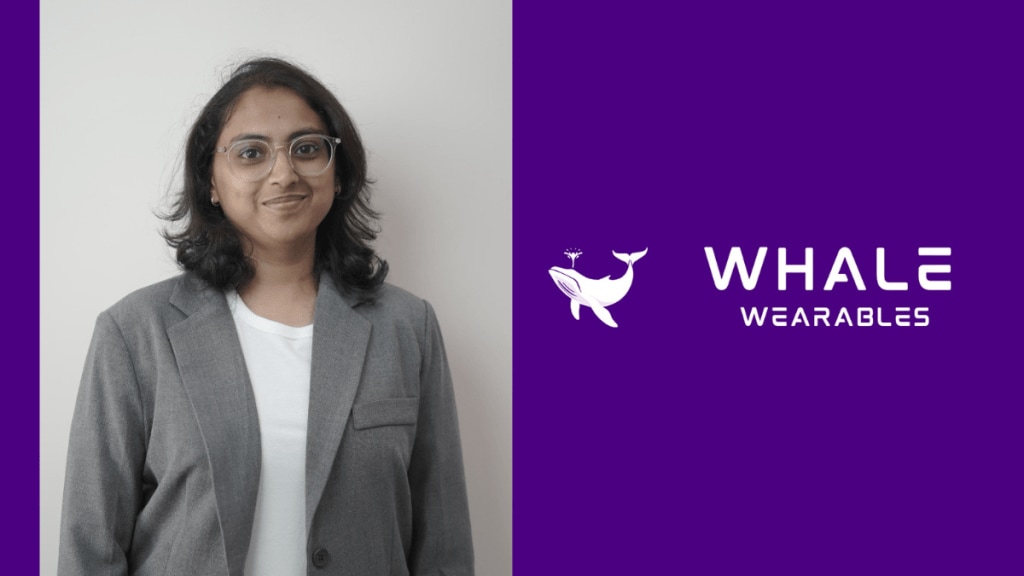Every 16 minutes, a woman in India is a victim of crime, according to the latest National Crime Records Bureau (NCRB) data. It was against this grim backdrop that Whale Wearables, a Belgaum-based startup, was born—driven not just by an entrepreneurial spirit but by anger, frustration, and a deep sense of purpose. “After the Nirbhaya incident, the two of us were returning from a candle march, feeling completely drained. We hadn’t even reached the parking lot when another horrific news report came in from our city, Belgaum. That day, there was a fire inside us—a deep rage. We were angry, and we started asking ourselves, ‘What can we do?’” recalled Nandita Yenagi, founder, Whale Wearables, in conversation with financialexpress.com. As engineers, Yenagi and her team recognised a gap in the market: the lack of accessible and effective self-defence gadgets. That realisation led them to develop technology-driven safety devices designed to protect women from outdoor assaults.
Over the years, the concept evolved, culminating in a patented innovation that has now reached the commercialisation stage. “Last year, we got a patent grant, and I decided to take this up full-time,” Yenagi said. The startup is currently focused on the Indian market but has already caught international attention. “We were invited by the U.S. Department of Commerce to showcase our innovation at the SelectUSA Investment Summit. The U.S. market is more mature in terms of awareness of self-defence gadgets, and we plan to expand there, as well as to the UK and Africa, as we grow. But for now, our primary focus is India.”
Market trends indicate a growing demand for personal safety devices. According to Grand View Research, the global self-defence market size was $ 3.03 billion in 2024 with a CAGR (Compound Annual Growth Rate) of 6.5% till 2030. The increasing awareness of personal safety, particularly among women, is driving innovation in the segment.
Whale Wearables is taking a multi-pronged approach to market entry. “Our go-to-market strategy involves collaborating with multinational corporations (MNCs), where HR teams are encouraging us to conduct demonstrations of our gadgets. We will also be organising self-defence sessions to educate potential users,” Yenagi added. The startup is leveraging corporate programs as a key distribution channel, ensuring that safety awareness translates into adoption.
Beyond direct-to-consumer sales, the startup is also looking at institutional partnerships. “This is a big problem we are trying to solve. We definitely have to work with law enforcement and government initiatives in the long run. But initially, we are looking at institutional partnerships and B2C,” she added. Government agencies, corporate safety programs, and NGOs focused on women’s welfare are all potential collaborators. Several companies in India are competing in the self-defence gadgets market, including Safelet India, Knockout, and Impower, offering products like pepper sprays, stun guns, and smart safety wearables. Prices for these self-defence tools range from as low as Rs 300 for basic pepper sprays to Rs 10,000 or more for advanced safety devices.
Pricing remains a crucial factor in the adoption of safety products, and Whale Wearables is aware of the balancing act between affordability and sustainability. “Initially, our products will be priced slightly higher until we achieve scale and mass production. But we will ensure that all our products—whether premium or basic—offer the essential features needed for safety,” Yenagi explained. Currently, Whale Wearables offers three self-defence products, with prices starting at Rs 2,400. The lineup includes a smart band that allows users to instantly share their live location with trusted contacts and a high-tech glove capable of delivering electric shocks to deter attackers.
For startups in the hardware space, securing funding is essential for scaling production. Whale Wearables is at a critical juncture where external investment could accelerate its mission. “We are already ready with our minimum viable product (MVP), and any investment raised will primarily be used for production and market entry,” Yenagi noted. Unlike many early-stage startups that remain in the prototype phase for extended periods, Whale Wearables is focused on rapid deployment and real-world application.
In a country where women’s safety remains a pressing issue, innovations like these could prove to be game-changers—not just as products, but as symbols of resilience and empowerment.
